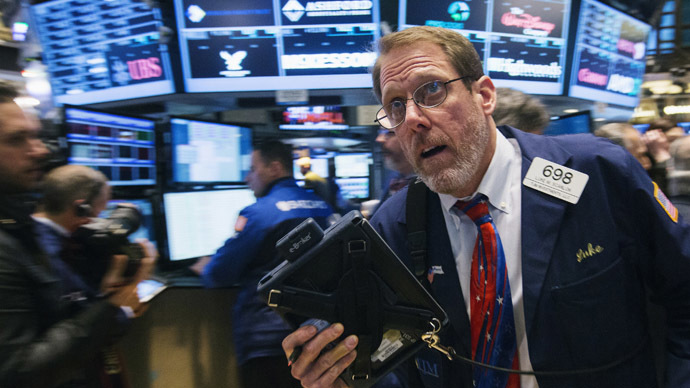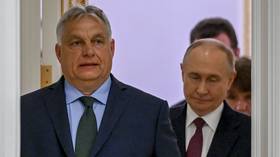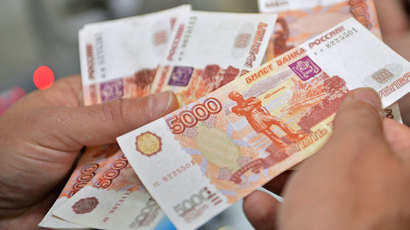Currency devaluation ‘easy’ answer to emerging market crisis – Saxo Bank chief

The emerging market currency crisis is being propelled by policymakers who are “seeking the easy answer” by devaluing their currency, which is an unsustainable global model, Saxo Bank CEO Steen Jacobsen told RT.
The spectacular loss of value in emerging market currencies – the South African rand, the Russian ruble, the Indian rupee, and the Turkish lira- is a result of government's tightening monetary policy, which has even further driven down the value against the euro and dollar.
Governments face huge monetary policy decisions in the third and final stage of the global financial crisis which kicked off in 2008 with America's sub-prime mortgage crisis and spilled into Europe, but simultaneous devaluation of currencies in the hope of driving up exports can’t be universally applied, says the Saxo Bank chief.
“We are in the final part of this cycle. Which comes next is probably the mandate for change. We all need to change, the export-driven business model isn’t sustainable,” Jacobsen told RT in an interview at his Moscow office.
2013 has been a train wreck of a year for emerging currencies, which are taking a huge beating from the euro and dollar as their respective economies regain post-crisis strength.
India’s rupee has had one of its worst years ever, and in 2013 lost 11 percent against the dollar. The ruble has hit a 5-year low against both the dollar and euro, soaring above 48 rubles against the euro, and over 35 rubles against the dollar.
The rand hit a 5-year low at 11.3785, the highest since October 2008. The Turkish lira and Mexican peso fell in response to the big dip.
Devaluation is being fueled by policymakers in emerging markets. In an effort to make the ruble a free-floating currency, the Russian central bank is cutting its monetary intervention and increasing the boundaries of a currency corridor, which is sending the currency to record lows against both the euro and the dollar.
“Policymakers are always seeking the easy answer, and the easy answer right now is weakening the currency. But by doing that you have to remember that the only reason anyone buys into an emerging market is because you expect the currency to appreciate. Pursuing devaluation long term will hurt the appetite of long term investors,” Jacobsen explained.
“We don’t need to go to a full-blown crisis mode here,” Jacobsen said, but warns if all emerging markets pursue similar devaluation strategies, nothing will change.

“The only thing we have learned from this crisis is that we have learned nothing in the sense that we lack reforms, every political country needs reform,” he said, adding, “we all need to change, because the export-based business model isn’t sustainable.”
Knocking down a currency is a policy tool that is accessible, quick, and a bit of a “dirty” maneuver, according to Jacobsen, and is a main stumbling block in the way of real economic reform.
“In history, the only change that we have comes from crisis. We need the crisis to create a new and better mandate for change.”
US not to blame
America’s monetary policy has been at the center of the blame game over the huge amounts of investment that has spilled out of emerging markets, and for the severe currency losses in Brazil, Indonesia, Turkey, India, South Africa, and Russia. However, Jacobsen says the blame shouldn’t all be thrown on Uncle Sam.
In the case of the ruble, “at least 50 percent is internally driven, and the rest is external factors. The crisis you see in the ruble is driven by Russian politics.”
Jose Vinals, the director of the IMF’s monetary and capital markets department, said Tuesday the volatility in global markets is caused by problems in particular developing countries and not linked to the US Federal Reserve's decision to reduce its monetary stimulus.














